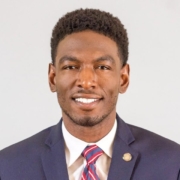Free School Meals for Eligible Kids
2023 Ideas Challenge Entry
Little Rock State Senator Clarke Tucker’s bill to offer free school meals for low-income students was signed into law. The USDA provides income eligibility guidelines for public school students throughout the United States to qualify for either free or reduced-price school meals. Tucker’s Act 656 eliminates the cost of all school meals for students who come from families that qualify for reduced-priced meals. This will have a huge impact on families who rely on school meals for their kids to eat and who need their dollars to stretch a little further.
The law creates a tiered system of funding. The Arkansas Department of Education will utilize any available federal funds to pay for these meals, and then the state will cover any remaining costs (including dedicated funding from medical marijuana tax revenue).
Impact:
Students who qualify for reduced-priced meals come from families with limited means and are still required to make some payment to receive their school meals. The price of those families’ school meals, even when reduced, can add up and even create debt. As part of the legislation, the state auditing entity will audit the Arkansas Department of Education Child Nutrition Unit and provide a report to the Senate and House Committees on Education every year to monitor the program, ensure that every eligible child in Arkansas is receiving these meals, and help the legislature budget appropriately.














